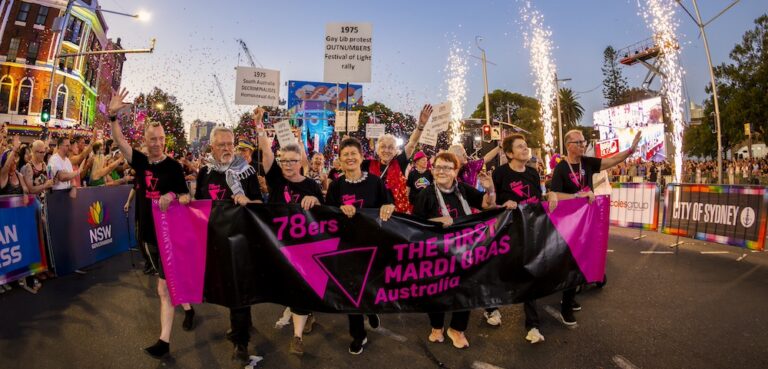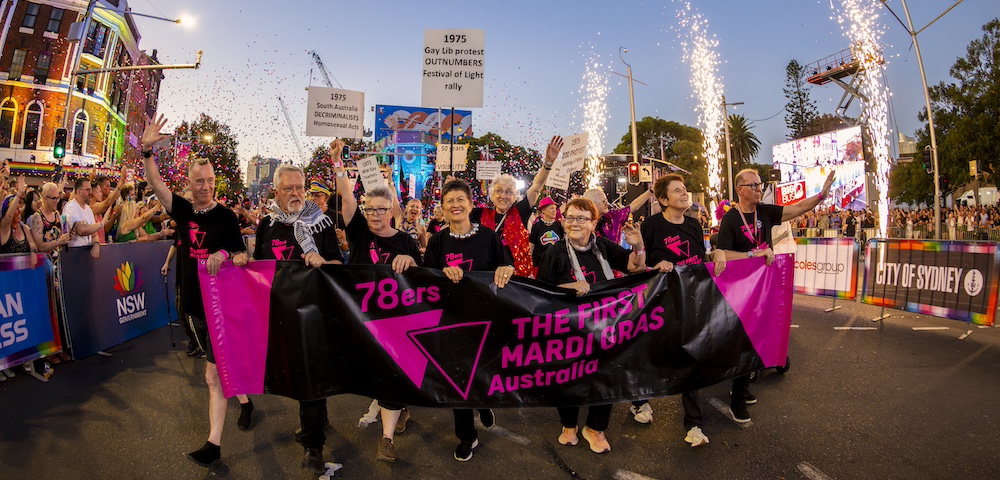
Trying to sort it out
When it was announced this month Australian HIV rates had risen once again this year -“ to levels not seen since the mid-1990s -“ there were lots of theories as to why.
One of the theories was that it might be linked to the growing number of gay men attempting to have unprotected sex with people of the same HIV status, which some men believed eliminated or reduced the risk of HIV transmission.
It’s called serosorting, which means choosing sexual partners by their sero, or HIV, status. HIV-negative men seek other negative men to have unprotected sex, and HIV-positive men seek other positive men for unprotected sex.
In reality the practice is incredibly risky, for reasons outlined below in this story. Yet in Sydney, where figures show the number of negative men serosorting has doubled in the last few years, HIV rates have remained stable.
According to Nick Corrigan, director of community health at ACON, data from 2003 to 2005 showed while Sydney gay men overall were having less unprotected anal intercourse with casual partners, there was an increase in unprotected anal intercourse with casual partners of the same HIV status.
More men are talking about their HIV status with casual sexual partners than ever before, Corrigan told Sydney Star Observer.
Out of the HIV-positive men who had unprotected anal intercourse in 2003, 44 percent of them did that with other positive men. In 2005 that figure rose to 65 percent, Corrigan said.
Similarly, of all the HIV-negative men having unprotected anal intercourse in 2003, 13 percent said they knew the other man was negative. In 2005, 26 percent said they knew the other man was negative.
It could be interpreted as a good thing because, if you’re going to have unprotected anal intercourse, it’s good to have it with someone who is the same status as you. But there can be problems for both positive and negative people, Corrigan said.
Positive men having unprotected sex can risk being infected by other strains of HIV and other STIs, both of which can impact on health and treatment options.
In negative men it’s such a high-risk strategy with casual partners or regular partners, Corrigan said, because even if partners say they’re negative they might not be. Some men might lie about their status while others might simply not know.
Although testing rates are high in NSW there will always be a percentage of HIV infections that are undiagnosed. So men who believe themselves to be negative in fact aren’t, Corrigan said.
Serosorting for HIV-negative men is very fraught and very open to be a really flawed strategy.
While some men attempt to serosort by openly discussing HIV status, others attempt it by trying to read clues or making assumptions.
For instance, if on an internet profile someone has the condoms negotiable box ticked, a positive man might presume that means the profile owner is positive, while a negative man might presume he is negative too, Corrigan said.
Different people using the same clues come to different conclusions.
Some people also make assumptions about physical appearance or interests. If a guy looks young and fit a negative man might assume he is also negative, whereas a positive man might think someone else is positive if they share the same sexual interests or go to the same venues.
There are also sometimes false expectations of disclosure, Corrigan said.
HIV-negative men commonly assume someone is negative if they don’t tell them otherwise.
I think it’s about 80 percent of negative men believe a man with HIV will tell them he’s positive. But most positive men do not disclose all the time. This is where the expectations are unrealistic.
Only about a third of HIV-positive men disclose to all their casual partners. The majority don’t.
Reasons for not disclosing include fear of rejection.
Corrigan said ACON would soon be launching a campaign about HIV disclosure to raise awareness in HIV-negative men of the reasons positive men don’t disclose.
There would also a campaign about making assumptions on HIV status over the internet.
In conclusion Corrigan said the best way to ensure against HIV infection was to use condoms during anal intercourse.










